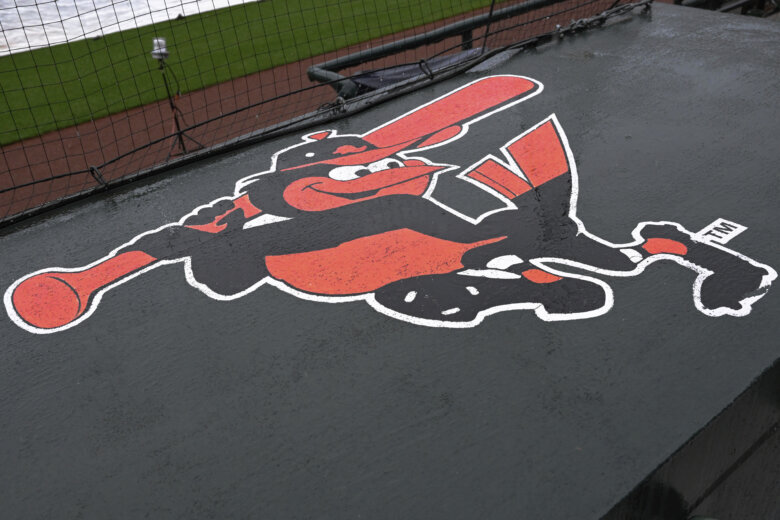This article was republished with permission from WTOP’s news partners at Maryland Matters. Sign up for Maryland Matters’ free email subscription today.

This content was republished with permission from WTOP’s news partners at Maryland Matters. Sign up for Maryland Matters’ free email subscription today.
State officials expressed optimism for a long-term deal to keep the Baltimore Orioles at Camden Yards.
A spokesperson for Gov. Wes Moore (D) said Tuesday that negotiations, criticized by some as lethargic, continue but would not be done in public. Comments made Tuesday, however, offered no new look into the state of negotiations or when a new deal could be inked.
“The Moore-Miller Administration remains focused on getting this deal done,” said David Turner, senior advisor and communications director to the governor. “The Orioles have been reliable, community-minded partners and we are working together to secure the team’s future at Camden Yards for decades to come.”
Turner’s comments come before a meeting of the Maryland Stadium Authority on Tuesday.
The team is entering the final month of a regular season that appears likely to extend to a playoff run.
The Orioles and the state also enter the final third of 2023 without a long-term deal to keep the team at Camden Yards.
The Orioles have called Camden Yards home since 1993. The team and Maryland Stadium Authority are in negotiations over a lease extension.
John Angelos, team chair and CEO, promised an announcement about a new deal by Major League Baseball’s all-star break. Now the season is beyond the trade deadline and fans are beginning to calculate how many more wins it will take for the Orioles to make their first playoff appearance since 2016.
“Since day one, Governor Moore has shown his commitment to making a deal that keeps the Orioles in Baltimore and is good for the taxpayers of Maryland,” said Turner. “This approach will attract private investment to Baltimore for the benefit of the broader Baltimore community and Marylanders all across the state.”
A spokesperson for Angelos did not respond to a request for comment.
In 2022, the legislature approved $1.2 billion — about $600 million each for the Ravens and Orioles — for improvements to the teams’ respective stadiums. The Ravens signed a lease that keeps the team at M&T Bank Stadium through 2037 and includes two optional five-year extensions for a total of 25 years.
An administration source familiar with the negotiations said Moore and the Maryland Stadium Authority want the Orioles to sign a lease “that keeps the team in Baltimore for the next several decades.”
Neither the source nor the Moore administration has offered specifics about the exact length of a new agreement. The administration source downplayed the potential for an extension of the current lease to provide more time for a longer-term deal. Instead, the source painted an optimistic picture — without providing any specifics — of getting a long-term lease done by Dec. 31.
Angelos wants a deal that would include redevelopment of an area around the two-stadium complex in Baltimore.
The administration source downplayed reports that the proposed development was the sticking point in negotiations, calling it a narrative created by the media.
But neither the source, the governor’s office or Angelos have been explicit on where the two sides are apart.
Earlier this year, Moore accompanied Angelos and team officials on a tour of The Battery Atlanta, a year-round entertainment district near the Atlanta Braves’ home field.
But since then, Moore has expressed concerns about the state’s upcoming budget.
“As much as I want to say ‘yes,’ you’re going to hear some ‘no’s,’” Moore told a gathering of county leaders from across the state earlier this month.
One published report said Angelos sought control of parking lots that are part of the complex as well as an additional $300 million for development.
Such a deal would likely require the state to do something of equal value for the Ravens as the two sports franchises have parity agreements with the Maryland Stadium Authority.
Exactly how much more money the state is willing to pony up or what other resources could be tapped remains an open question.
Administration sources said they wanted state funding to leverage additional private sector investments that would create a destination area within the city.
Sweetening the pot with additional state funding could run into a roadblock with at least one legislative leader.
Senate President Bill Ferguson (D-Baltimore City) represents the area that includes the stadiums. Two weeks ago, he spoke to reporters and said the 2022 agreement would have to suffice for now.
“I think it’s premature to talk about investments around a facility when we don’t have a partner that is committing to be there for the next 20 to 30 years,” Ferguson said. “We can have the conversations around what happens outside once we know that there are long-term partners.”








